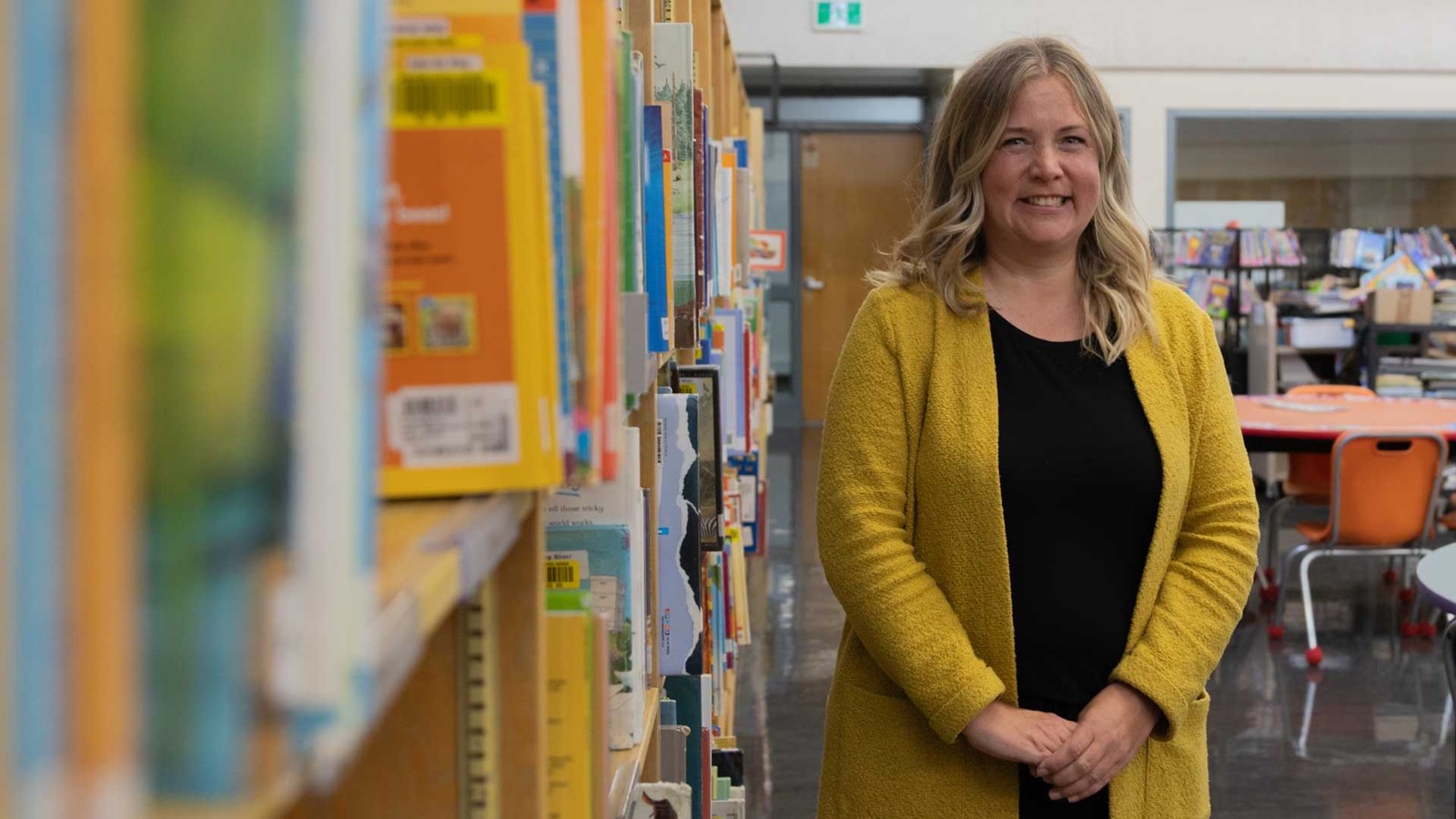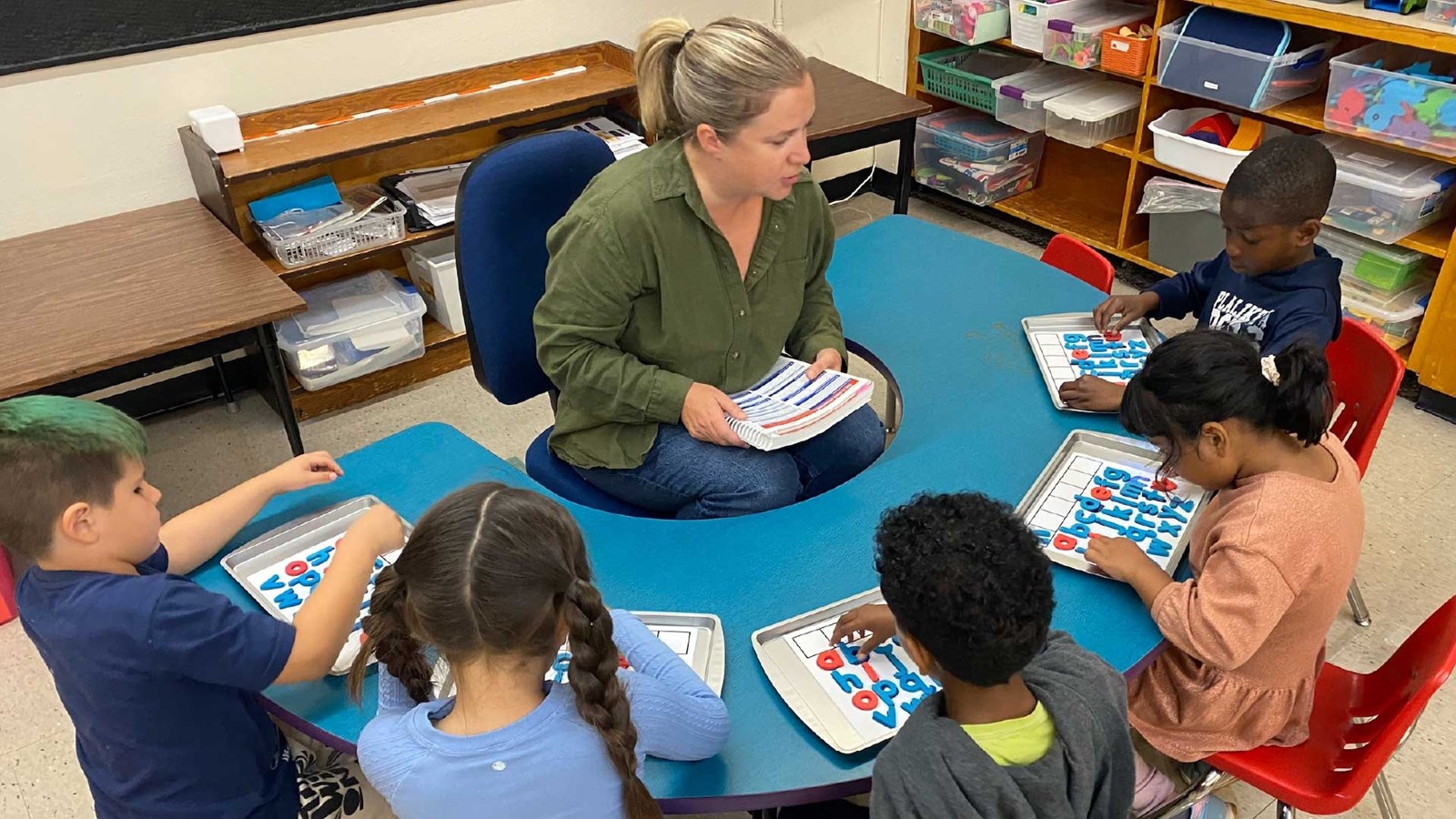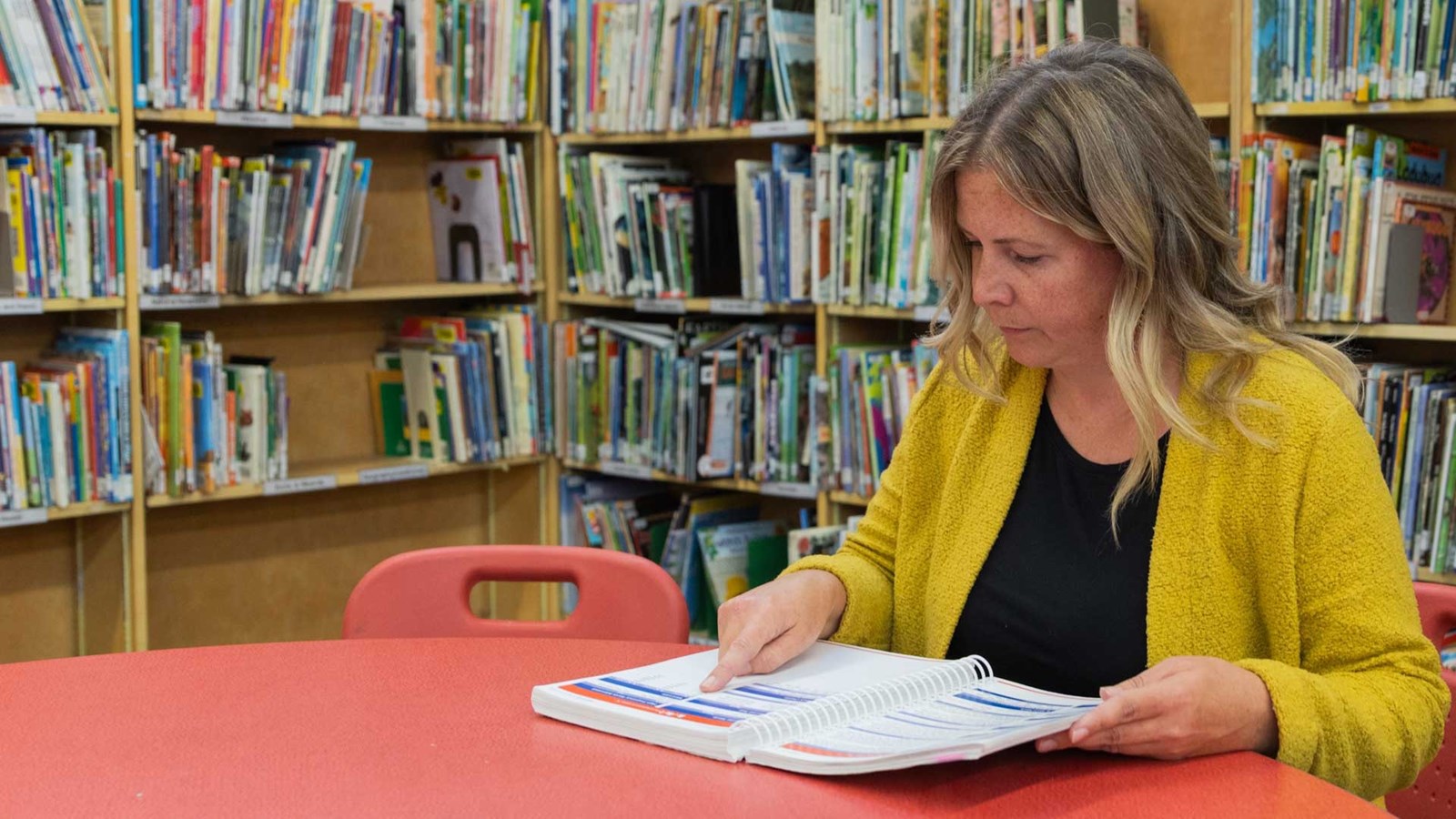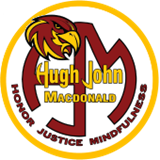Teacher Feature: Carrie Wood- Leading Literacy Advocacy
October 14, 2025 News Story
Dyslexia is a specific learning disorder that affects reading and written expression, impacting about 15 to 20 percent of the population, according to the International Dyslexia Association. It isn’t tied to intelligence or effort, but without proper support, it can lead to lasting challenges for learners. For Carrie Wood, a learning support teacher at John M. King School, understanding dyslexia has become central to her mission. Since beginning her teaching career there in 2012 after earning a degree in English, Carrie has been passionate about literacy. This year, her efforts were recognized nationally with Dyslexia Canada’s 2025 Educational Excellence Award.
A Personal Experience that Sparked a Professional Calling
In 2019, Carrie was teaching Grade 1 while her own son, in another school division, was struggling with reading. “We had read to him every night since he was a baby. I thought he would take off in reading. But that didn’t happen,” she recalls. When the pandemic hit, she began working from home while supporting her children. “I went in overconfident, thinking I could fix everything with one-on-one support. But nothing helped.” The weight of not being able to help her son, despite being a trained teacher, took a toll. “Two months later, I ended up on a mental health leave, feeling like a failure and a phony,” she says.
Her son was later diagnosed with dyslexia, and at the same time, the Ontario Human Rights Commission’s Right to Read report was released. “It finally gave us answers,” she says. “I wasn’t to blame, and neither were his teachers. We just didn’t know what we didn’t know.” She soon developed a proposal for the Manitoba Teachers’ Idea Fund, securing $83,000 for professional development in evidence-based reading instruction at her school.
Advocacy That Empowers Students
This experience opened her eyes to a larger issue facing many classrooms: it’s not that teachers lack dedication, but that many were never taught how reading develops in the brain or how to identify and support students who are struggling. “I want teachers to feel empowered with the knowledge and tools to help every student find success in reading,” she says. Through her advocacy, she promotes universal screening and evidence-based instruction to ensure that all students, regardless of background or resources, have the right to be taught to read.
Carrie recalls a powerful moment when families, educators, and community members came together for Dyslexia Awareness Month and the Universal Screening Symposium. But it’s the everyday classroom breakthroughs that mean the most. “When a child finally cracks the code and gets it… that pure joy and pride is everything,” she says. Students who once saw themselves as “bad readers” are now decoding words, reading with fluency, and building real confidence. “They go from avoidance and frustration to pride and persistence,” she adds.
 Her Message for Fellow Educators
Her Message for Fellow Educators
Carrie Wood’s journey is a powerful reminder that lasting change in education begins with vulnerability, learning, and a deep belief in every child’s potential. Her work is not only helping students become confident readers but also empowering teachers with the tools and knowledge they deserve. “This is hard and uncomfortable work,” she says. “But there’s so much to learn if you stay open to it”. Her message to educators is one of hope and encouragement: you don’t have to have all the answers, just the willingness to keep learning. “Every child can learn to read given the right support.”


